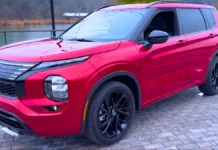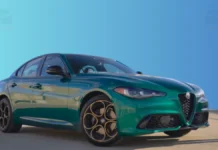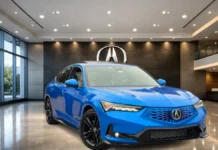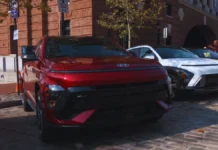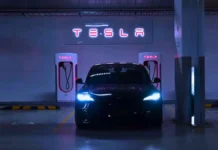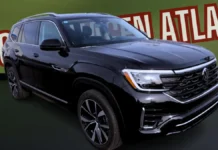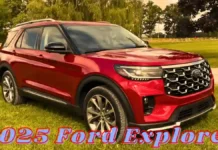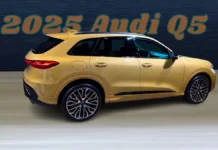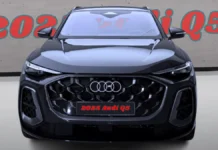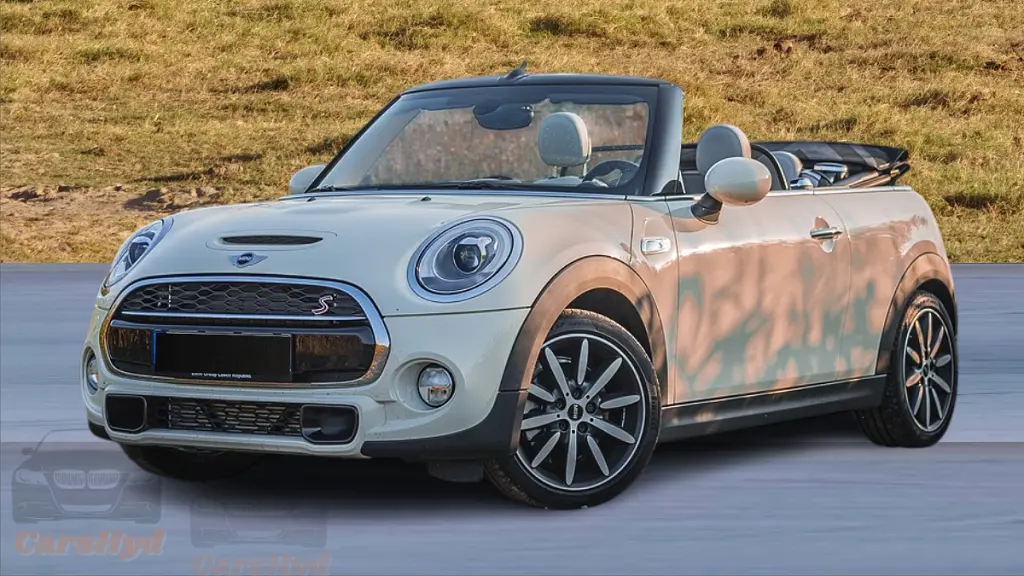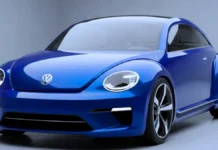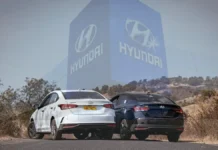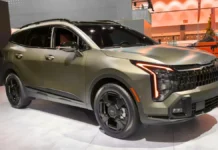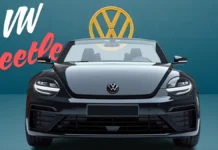In recent years, the automotive world has seen a surge in the development of electric vehicles (EVs), with manufacturers racing to adapt to growing environmental concerns and changing consumer demands. Mini, a brand known for its unique, stylish vehicles, was expected to push boundaries with the introduction of an electric convertible version of its iconic Mini Cooper. However, recent reports suggest that this much-anticipated model is no longer in the cards. The dream of an electric Mini Cooper Cabriolet has been dashed, and while no official statement has been released by the brand, industry insiders point to a variety of factors that likely led to the cancellation.
The Rise and Fall of the Electric Convertible
When Mini first introduced its electric version of the Cooper, the automotive community was buzzing with excitement. The small yet efficient electric car quickly became a favorite for city dwellers, offering a combination of eco-friendliness, style, and practicality. In 2024, following the success of the electric Cooper hatchback, rumors started circulating that Mini was preparing to release an electric version of its beloved convertible. The timeline was set for production in 2027, which had many enthusiasts eagerly awaiting the future launch.
However, in a surprising turn of events, the German publication BMW Blog recently revealed that the electric Mini Cooper Cabriolet would no longer be part of the brand’s future plans. While Mini has yet to provide an official explanation, sources close to the project have suggested that economic realities, alongside shifts in consumer demand, played a significant role in the brand’s decision to abandon the development of this particular model.
Why Electric Convertibles Are So Rare
It’s important to note that electric convertibles are far from common. While EVs are becoming increasingly popular, the convertible segment remains a niche market. Traditional gas-powered convertibles have already struggled to find widespread appeal, with many consumers opting for practical sedans or SUVs over vehicles designed primarily for leisure. Adding the complexities of electric powertrains into the mix, especially in an open-top design, only compounds the challenges.
Mini, however, was once a pioneer in the electric convertible space. The brand had already launched the first (and only) electric Mini Cooper Cabriolet in limited numbers. Only 999 units were produced for the European market, making it a rare collector’s item. Despite this limited production, Mini’s electric cabriolet received attention for its fun, eco-friendly driving experience, and many expected a follow-up version. But despite the initial excitement and the anticipation that followed the 2024 facelift, the new electric version never materialized, and now it seems that Mini is pulling the plug altogether.
The Strain of Economic Pressures
One of the primary reasons cited for the cancellation of the electric convertible is economic in nature. Like many car manufacturers, Mini has had to reassess its strategies in light of the challenges posed by the global automotive industry. The cost of manufacturing electric vehicles remains high, and while demand for EVs continues to grow, it has not yet reached the level where niche models, such as a convertible, would make financial sense for the company. The profit margins on small, specialty vehicles are typically lower than those on mass-market models, and with Mini facing declining sales overall, the company is likely focusing its resources on more popular models with higher potential returns.
In fact, Mini’s global sales have experienced a noticeable decline in recent months. According to recent data, the brand has seen a drop of nearly 21% in the number of units sold since the beginning of the year, with only 166,703 vehicles registered across all segments. While the electric version of the Cooper remains a key part of Mini’s future, it seems that the company’s priority will be on improving the core models rather than branching into the uncertain waters of electric convertibles.
External Factors and Global Supply Chain Issues for Electric Convertible cars
Another element contributing to the cancellation of the electric Mini Cooper Cabriolet is Mini’s current manufacturing strategy. Mini, like many automakers, produces its electric vehicles in China. With the recent imposition of new tariffs on vehicles imported from China to markets such as Europe and the United States, the financial viability of producing niche, high-cost models has been further called into question. Increased tariffs mean higher costs for consumers, potentially limiting the appeal of electric vehicles in regions already grappling with inflation and other economic uncertainties.
Mini is undoubtedly aware of the risks involved in this landscape, and it’s possible that the combination of economic factors—including production costs, tariffs, and the relatively limited demand for electric convertibles—led to the decision to halt plans for a convertible version of the electric Cooper. In such a competitive market, automakers must make tough decisions about where to invest their resources, and unfortunately, the electric Mini Cooper Cabriolet appears to have fallen victim to these tough realities.
The Bigger Picture: What Does This Mean for the Future of Mini?
While the electric convertible may be a casualty of Mini’s more practical strategy moving forward, the brand’s overall commitment to electric vehicles remains strong. The 2024 updates to the Mini Cooper Electric have brought with them a host of improvements, and the vehicle remains a popular choice for eco-conscious city dwellers looking for a compact and stylish ride. Additionally, Mini is likely to focus on expanding its electric lineup with more conventional body styles, such as the hatchback and crossover variants.
For fans of the brand, the cancellation of the electric convertible may be disappointing, but it does not signal the end of Mini’s electric future. In fact, the brand continues to push the envelope in terms of design and innovation, with a clear focus on sustainability and eco-friendliness. The Cooper Electric is expected to remain a key player in Mini’s portfolio, and as the demand for EVs increases, it is likely that we will see more electric options from the British automaker in the coming years.
What Does This Mean for the Future of Electric Convertible?
Mini’s decision to forgo the development of an electric convertible also raises important questions about the future of electric convertibles in general. While the idea of an eco-friendly open-top car is undeniably appealing, the complexities and costs of building such a vehicle may be too high for most manufacturers. The electric vehicle market is still in its infancy, and the focus is largely on creating practical, everyday cars that appeal to a broad audience. Convertibles, by their nature, are more of a luxury item and may not fit into the current landscape of electric car development.
That being said, as technology improves and more consumers adopt electric vehicles, we may eventually see a resurgence of electric convertibles. For now, however, the dream of an electric Mini Cooper Cabriolet remains just that—a dream. While the cancellation of this model is certainly a disappointment for some, it also reflects the larger realities of the automotive market, where cost-effectiveness and consumer demand ultimately drive decisions.
Conclusion
The cancellation of the electric Mini Cooper Cabriolet may have come as a shock to many, but it’s not entirely surprising when considering the current market dynamics. Economic pressures, declining sales, and the complexities of building a niche electric vehicle have all contributed to Mini’s decision to halt plans for this model. While this move may disappoint some fans, it’s clear that Mini is not abandoning its commitment to electric vehicles altogether. Instead, the brand seems to be prioritizing models that offer more widespread appeal and financial viability.
For those hoping for an electric Mini Cooper convertible in the future, there may be a glimmer of hope—though it might take a few years before the technology and market conditions align to make such a vehicle a reality. In the meantime, the electric Mini Cooper remains a viable and attractive option for those seeking a stylish, environmentally friendly car that doesn’t compromise on performance.

